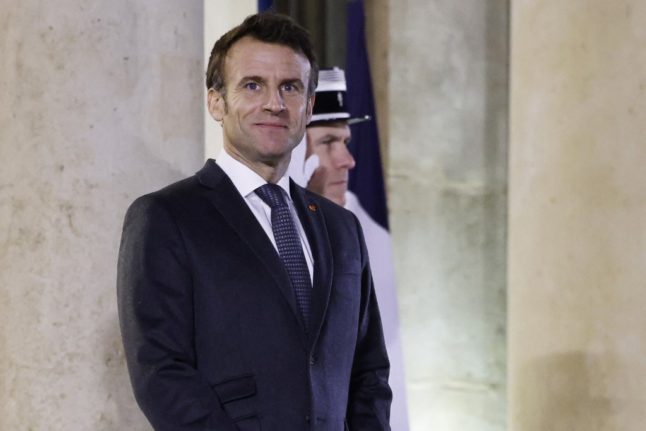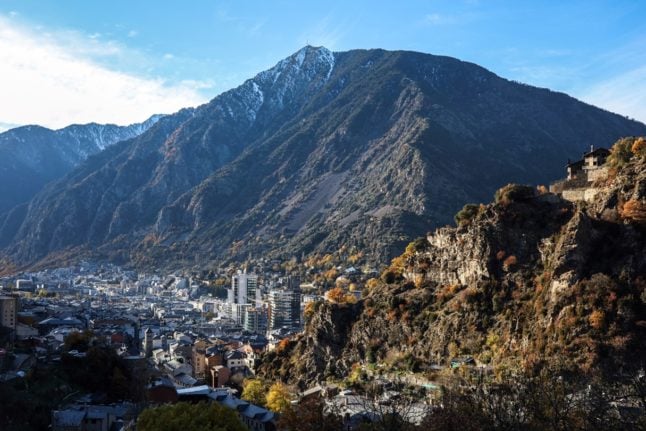French trades unions are threatening the “mother of all battles” to block the government’s plan to raise the official pension age to 64 by 2030.
Given the subject – pension reform – they should perhaps be planning the “grandmother” of all battles. The issue is ancient but never retires from French public life.
The country was severely disrupted by strikes and street protests over pension reform in 1995 and 2019. There have been seven or eight changes in the system since President François Mitterrand boldly reduced the official retirement age in France to 60 from 65 four decades ago.
KEY POINTS: France unveils its pension reform plan
The present reform is far from being the once-and-forever, root-and-branch change in the state system which President Emmanuel Macron promised in 2017 and then withdrew at the start of the Covid epidemic in 2020. It also falls short of Macron’s campaign proposal last year to increase the official retirement age to 65 by 2031 (compared to 67 by that time in Germany and the UK).
If the reform goes ahead (as I believe that it will) France will still retire earlier in 2030 than almost all EU nations do now – and earlier than French people did 40 years ago. It will no doubt be necessary for a future President to stir up the old sea-serpent of pension reform once again in the next decade.
Why is the issue so explosive in France? Unlike other countries almost all French people, save the very rich, depend entirely on the state pension system. There are no company or private pension schemes – although other ways of investing for old age do exist.
Pension payments are generous – 75 percent of average income for state workers, 50 percent in the private sector – but most retired French people rely entirely on what they get from the state.
There is, in truth, not one French state pension system but 42 different regimes, including favourable deals for rail and Paris Metro workers, ballet dancers, lawyers, oil refinery and power station workers, police and soldiers.
In theory, pensions for the retired in each regime are paid out of the monthly contributions of those who are still at work and their employers. There are no individual pension “pots”.
In truth, several regimes are permanently in debt and have to be bailed out by the taxpayer. State employees benefit more than the private sector; the self-employed and the low-paid lose out.
The entire system will be in debt once again from this year – increasing the French budget deficit or taking billions of euros of taxpayers’ money which might be better spent elsewhere.
As people live longer, the legion of the retired grows. In 2002 there were two “workers” to pay for every pensioner in France. By 2030, unless the system is changed, there will be only 1.6 workers to support each retired person.
At present, low-paid workers might receive a pension as “low” as €1,100 a month. As part of the reform announced on Tuesday, that will rise to €1,200 a month minimum for all from September – or €14,400 a year, double the UK basic pension of £7,300.
To fund such a generous system, France can no longer afford to work fewer years than its EU partners or international competitors. Taken as a whole, France works less hours than other nations – partly because of the 35 hour week, partly through unemployment but also because of the early official retirement age.
How does France’s pension age of 62 compare to the rest of Europe?
According to an OECD study, France worked 630 hours a year per inhabitant in 2018, including children and the retired. Germany worked 722 hours per inhabitant; the UK 808 hours, and the USA 826.
President Macron argues that France can only afford its generous social model and can only compete successfully with its European partners and global rivals if – as a nation – if it puts in more hours.
The trades union federations reject these arguments. They believe retirement at 62 (admittedly much later for some people) can be preserved by higher contributions from workers and above all “the bosses”.
Their position is untenable but understandable. The waning strength of trades unions in France is concentrated in the state sector. Public workers, from railwaymen to nuclear power workers, do very well from the existing chaotic system.
Less comprehensible is the head-in-the-sand attitude of most opposition parties, from the Left to the Far Right. Both the hard-left La France Insoumise and the far right Rassemblement National still campaign for the retirement age to be lowered to 60.
This may seem economically illiterate or irresponsible. It fits with the broader view on the hard left and far right that France can somehow survive, or even thrive, by disconnecting itself from the rest of Europe and the rest of the world. The UK already tried that, les gars, with calamitous results.
So can Macron and his Prime Minister Elisabeth Borne get the reform through the National Assembly without a majority of seats? Yes, they can.
The shape of this proposed reform has been altered to match ideas long promoted by the diminished centre-right party, Les Républicains (LR). The retirement age will rise to 64 by 2030, in three monthly instalments each year from September, rather than 65.
The 41-year minimum contribution period for a “full” pension will be increased to 43 years by 2027 – eight years earlier than anticipated.
The 62 LR deputies may quibble and seek small amendments but they will support the reform. Macron and Borne will have enough votes to push it through the assembly without resorting to their emergency powers under Article 49.3 of the constitution.
The only way that this reform can be stopped is by crippling strikes and/or violent street protests. The first test will come with a national strike supported by all eight trades union federations, both the militant and the moderate, on January 19th.
Hospitals, schools, transport and energy systems are already at full stretch. There is already great anger about food and energy prices. The timing may be favourable to the unions and awkward for the government.
The national mood – a mixture of fury and resignation – is difficult to read. The protests may fizzle out; alternatively, the next few weeks may be cataclysmic. Imagine last Autumn’s refinery strikes pasted on top of rail and schools and hospital strikes.
Will Macron give way, as Jacques Chirac did in 1995? I doubt it.



 Please whitelist us to continue reading.
Please whitelist us to continue reading.
As usual the French have no comprehension of how lucky they are (and will continue to be, even after these proposed reforms are implemented) when compared with other competitor nations in Europe and North America.
I am currently 63 and working full time in France. I made the statutory minimum of 42 years of NI contributions in the UK, required to earn the full state pension, which I will not receive until I am 66. Had I been born in 1960, rather than a year earlier, I would not receive my state pension until age 67.
The problem in France is the bloated and bureaucratic Public Sector, who never seem to be willing to contribute adequately to the system, compared to what they expect to receive down the line. The sense of entitlement is breathtaking; meanwhile the rest of us will have to suffer more unwarranted inconvenience in our daily lives.
This country is a beautiful place to live and work but the attitudes of so many of its people are totally archaic.